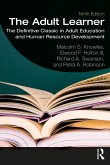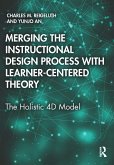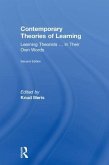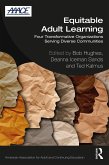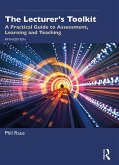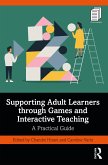Adults seek out learning for very different reasons in different contexts, and this book is intended to support adult educators' development in responding to this rich array. There is no single way to be an adult learner, and so it should not be surprising that there is no single way to be an adult educator. However, the authors believe that all educators must demonstrate a commitment to meeting adult learners where they are. Adult educators should help learners move forward not only with new content knowledge, information, and skills, but also with new ways of making meaning and seeing themselves, their role, and the world. This volume introduces many theories and concepts that can help adult educators do this effectively.
"Alisa Belzer and Brian Dashew have assembled an outstanding text on adult learning. This edited text brings together established and emerging scholars who offer multiple perspectives on learners, the individual and social context of learning, and the key processes and approaches for adult learning. This text should be required in every graduate program and professional development activity that prepares practitioners and scholars of adult learning."
"Adult education is a rich and diverse field of study that includes not only formal training and development, but also self-directed learning, community action, learning that occurs in social settings as well as the classroom, and much, much more. It is above all learner-centered that respects the intellect and capacity every adult brings to their community. Understanding the Adult Learner eloquently captures this richness and diversity, meeting the needs of those who are new to our field, as well as, being a valuable resource to seasoned scholars and practitioners. Though this book has many strengths, I see its greatest strength in how it bridges theory to practice, and practice to theory. It is a book that is a worthy addition to one's library."
Jeff Zacharakis, Professor, Kansas State University
"Belzer and Dashew's Understanding the Adult Learner: Perspectives and Practices is an exceptional book that explores many facets of adult learning and development theories, bridging the theory-to-practice gap in an accessible and readable way. In each chapter, scholars/authors focus on the purposes of adult education through distinct theoretical lenses, providing insightful reflections and discussions of learning and development theories, adult learners in diverse contexts, and actions adult educators can take to support them on their learning journeys. This volume is an essential addition to the field and should be required reading for all adult education scholars, graduate students, and practitioners."
Catherine A. Hansman, emeritus professor of Adult Learning & Development, Cleveland State University
"This comprehensive volume offers emerging scholars and practitioners in adult education insights into a wide variety of theoretical perspectives. The book is highly readable and loaded with practice-based ideas informed by theory. The authors are theorists and educators with extensive expertise in their areas of scholarship. Readers are encouraged to explore and consider the theories from a critically reflective perspective with regard to the learning context and positionality of the learners."
Randee Lipson Lawrence, Professor Emeritus, Adult Education, National Louis University, Adjunct Professor, Teacher's College, Columbia University
"This book is compelling in its grasp of the 21st Century issues and challenges facing the field of adult and continuing education. Drawing upon the insights of many iconic authors and their impactful theoretical and practical literary contributions that have shaped our research and practice for over 30 years, this text is indispensable for developing professionals seeking to understand the depth and breadth of the field."
Larry Martin, Professor Emeritus, University of Wisconsin, Milwaukee
"This book makes a significant contribution to the study and practice of adult education as it brings together a collection of foundational theories, perspectives, and concepts that will enhance teaching and learning in the profession. A major strength of the book is its translational approach where in each chapter, content experts present theories and concepts followed by ideas for practical pedagogical implications. Kudos to the editors for the design! Centralizing the theories and concepts of adult learning and development in one book will aid emerging scholars in making informed decisions about appropriate literature within which to frame their investigations. This will be a seminal book, particularly for its translational approach to bridging research, teaching, and learning."
Mary V. Alfred, Professor Emeriti, Texas A&M University
"Adult education is a rich and diverse field of study that includes not only formal training and development, but also self-directed learning, community action, learning that occurs in social settings as well as the classroom, and much, much more. It is above all learner-centered that respects the intellect and capacity every adult brings to their community. Understanding the Adult Learner eloquently captures this richness and diversity, meeting the needs of those who are new to our field, as well as, being a valuable resource to seasoned scholars and practitioners. Though this book has many strengths, I see its greatest strength in how it bridges theory to practice, and practice to theory. It is a book that is a worthy addition to one's library."
Jeff Zacharakis, Professor, Kansas State University
"Belzer and Dashew's Understanding the Adult Learner: Perspectives and Practices is an exceptional book that explores many facets of adult learning and development theories, bridging the theory-to-practice gap in an accessible and readable way. In each chapter, scholars/authors focus on the purposes of adult education through distinct theoretical lenses, providing insightful reflections and discussions of learning and development theories, adult learners in diverse contexts, and actions adult educators can take to support them on their learning journeys. This volume is an essential addition to the field and should be required reading for all adult education scholars, graduate students, and practitioners."
Catherine A. Hansman, emeritus professor of Adult Learning & Development, Cleveland State University
"This comprehensive volume offers emerging scholars and practitioners in adult education insights into a wide variety of theoretical perspectives. The book is highly readable and loaded with practice-based ideas informed by theory. The authors are theorists and educators with extensive expertise in their areas of scholarship. Readers are encouraged to explore and consider the theories from a critically reflective perspective with regard to the learning context and positionality of the learners."
Randee Lipson Lawrence, Professor Emeritus, Adult Education, National Louis University, Adjunct Professor, Teacher's College, Columbia University
"This book is compelling in its grasp of the 21st Century issues and challenges facing the field of adult and continuing education. Drawing upon the insights of many iconic authors and their impactful theoretical and practical literary contributions that have shaped our research and practice for over 30 years, this text is indispensable for developing professionals seeking to understand the depth and breadth of the field."
Larry Martin, Professor Emeritus, University of Wisconsin, Milwaukee
"This book makes a significant contribution to the study and practice of adult education as it brings together a collection of foundational theories, perspectives, and concepts that will enhance teaching and learning in the profession. A major strength of the book is its translational approach where in each chapter, content experts present theories and concepts followed by ideas for practical pedagogical implications. Kudos to the editors for the design! Centralizing the theories and concepts of adult learning and development in one book will aid emerging scholars in making informed decisions about appropriate literature within which to frame their investigations. This will be a seminal book, particularly for its translational approach to bridging research, teaching, and learning."
Mary V. Alfred, Professor Emeriti, Texas A&M University


